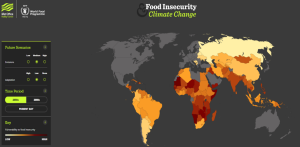Discuss the consequences of climate change on the food security in tropical countries.

Q.4 Discuss the consequences of climate change on the food security in tropical countries.
| How to approach the question
Introduction:
Body:
Strategies for Food Security:
Conclusion:
|
Introduction
Climate change, marked by enduring alterations in temperature, precipitation, and weather patterns, has resulted in a significant average temperature rise of 0.08 degrees Celsius per decade since 1880, as documented in NOAA’s 2021 Annual Climate Report. These transformations have profound implications for food security.
Body
Negative Consequences of Climate Change on the Food security in tropical countries:

Positive Consequences of Climate Change on the Food Security in Tropical Regions:
Strategies to Ensure Food Security in Tropical Regions:
Conclusion
The consequences of climate change on food security in tropical countries are profound and multifaceted. While climate change poses a significant threat to food security in these regions, it also presents some opportunities for adaptation and innovation. A comprehensive approach, encompassing mitigation, adaptation, and stakeholder collaboration, is essential to ensure a food-secure and sustainable future in tropical regions.
|

<div class="new-fform">
</div>